Responding to the Ebola Crisis: A Collective Effort
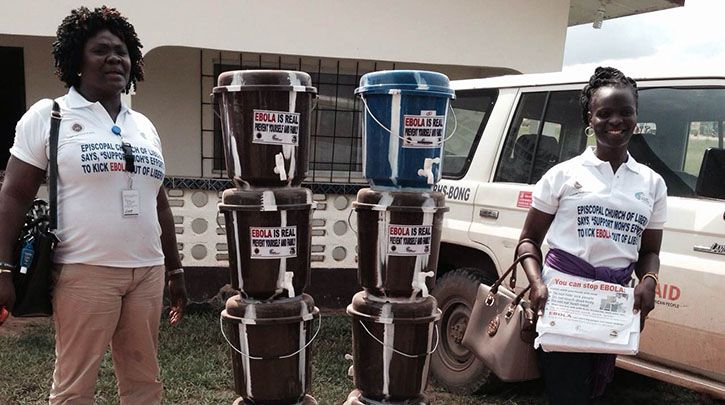
On a cloudy day in September, Agnes, Boima, Siah, Weedor and Harry gather at the Bong County Health Office in Liberia. They make up the Core Development Program team for the Episcopal Church of Liberia. Together, they support community advancements in agriculture, gender-based issues and health. They’ve gone out to the community in Bong County many times. But today is different. Today they have to contend with a new threat, a devastating one – the Ebola outbreak. Today they will distribute food packages made up of cooking oil, rice, fortified protein biscuits, cans of meat and fish. They will lead an effort to hand-deliver hygiene stations that include hand-washing buckets, soap and bleach to quarantined communities. Along with these buckets, they will hand out posters with key messages about the causes and prevention of Ebola so families can hang them on the walls of their homes. This team is part of a web of grassroots organizations located in Sierra Leone and Liberia, drawing on their years of experience working with communities and building trust to address this major health disaster.
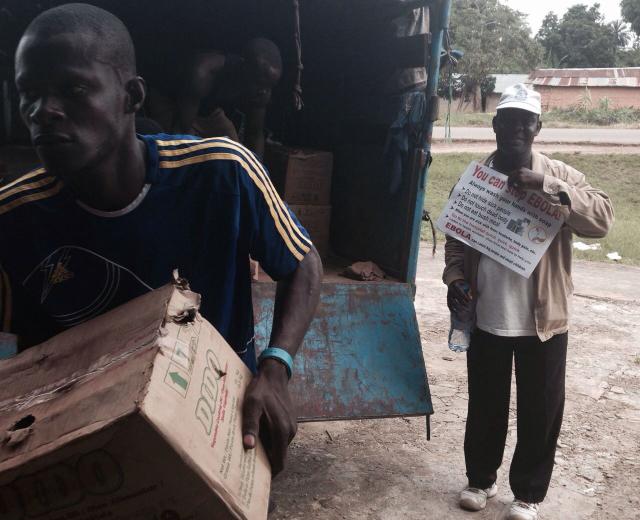
Efforts to curb the disease were further undermined by misconceptions about what caused the spread of this deadly disease, and about proper prevention and protection methods. A sense of complete hopelessness spread, especially as the message that ‘the Ebola virus has no cure’ was being conveyed. In some instances, entire villages refused to accept health workers in their communities. People hid victims, opted for traditional treatment and buried the dead without mentioning the cause of death to those who came to pay their respects. Those preparing the body, per existing customs – which involves braiding, washing and shaving – were exposed to the virus, increasing the likelihood of transmitting the disease to others by either hugging or clasping hands during traditional funeral ceremonies.
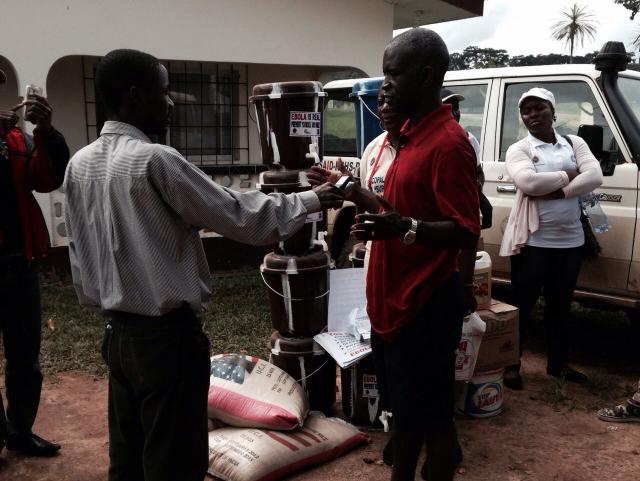
The Ebola virus disease will get worse for many months to come before it is controlled. For our partners in Liberia (the Episcopal Church of Liberia) and in Sierra Leone (the Anglican Diocese of Bo), it means they will be building upon their current infrastructure to respond to the crisis. The good news is that both are trusted partners in the remote communities that are considered hardest hit. This is a result of the intensive outreach achieved over the years through our Health, Agriculture and NetsforLife® programs. The groundwork laid in our previous and ongoing efforts enables us to effectively and efficiently respond to the crisis.
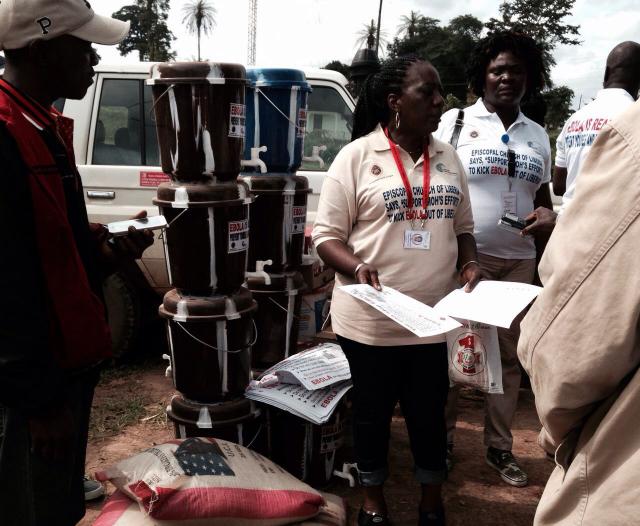
Like other disasters, we must take the long view and prepare for longer-term intervention during the post-Ebola phase. This will include addressing compounded challenges like rebuilding livelihoods, rehabilitating agricultural operations after the disruption of planting and harvesting and accompanying communities as they recover from the psychosocial trauma of this large-scale disaster.
This means Ebola emergency response and prevention will need to be linked and integrated to ongoing development programs. Although much of that work is currently on pause, the infrastructure and networks of group leadership and members remains intact. Moving forward, this will help with monitoring and overall management of Ebola recovery initiatives. This network can also be used as the basis for establishing Ebola Early Warning Surveillance Committees to prevent future outbreaks.
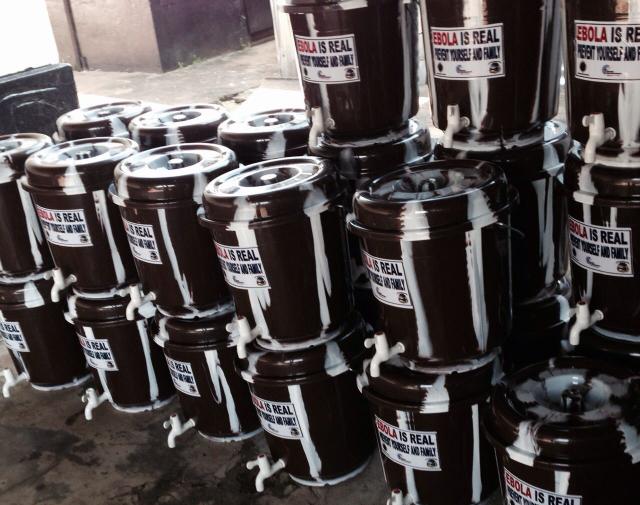
Agnes, Boima, Siah, Weedor and Harry will continue to address agriculture, livelihoods and gender issues, only now they will need to put into perspective the needs of survivors and their families as they recover from the Ebola crisis.
—————-

Abiy Seifu work is a Senior Program Officer for Episcopal Relief & Development.
Images: Top, The Episcopal Church staff ready to distribute items and posters. Middle 1, Unloading supplies. Middle 2, Handing over food supplies and sanitary materials in Bong County. Middle 3, The Episcopal Church of Liberia staff taking part in the distribution process. Last, Buckets with fitted taps used for handwashing.


